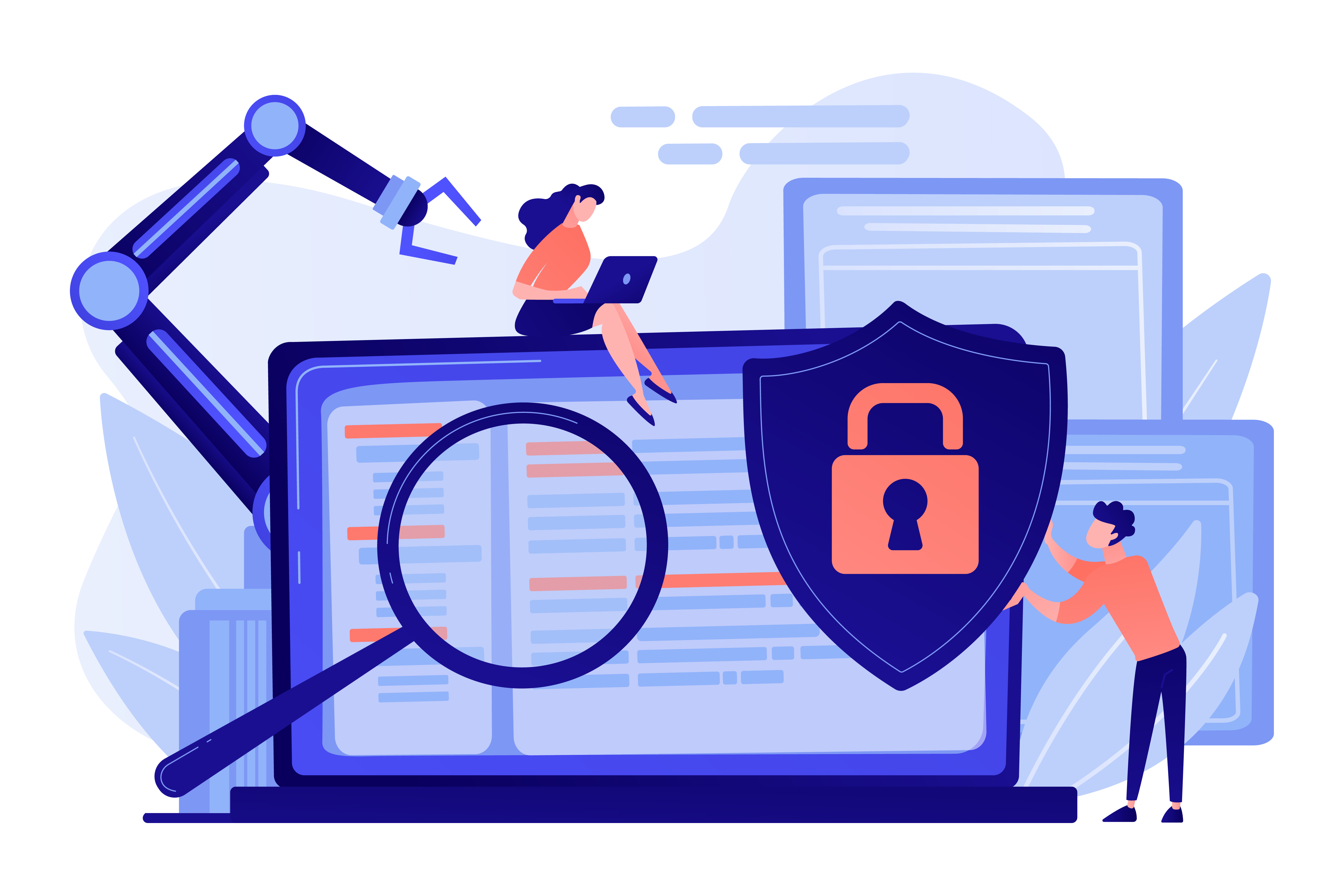In today's fast-paced and interconnected business world, it has become essential for organizations to verify the legitimacy and compliance of their business partners. Know Your Business (KYB) is a crucial process that ensures businesses are protected against financial crimes, such as money laundering and terrorist financing, while also maintaining compliance with anti-money laundering (AML) regulations.
This article will attempt to answer some of the frequently asked questions about Know Your Business, providing a comprehensive understanding of its importance, compliance requirements, and the benefits it brings to organizations. Let's dive in and explore the world of KYB.
1. What is Know Your Business (KYB)?
Know Your Business, commonly abbreviated as KYB, is a verification process that confirms the legal status of a company and its compliance with AML regulations. It is performed by regulated organizations, such as banks and insurance companies, to protect their interests and ensure they are conducting business with legitimate entities. KYB involves verifying crucial details about a business, including its physical address, phone number, source of funding, and business registration or license.
The primary goal of KYB is to prevent financial crimes, such as money laundering and terrorist financing, by ensuring that organizations have a clear understanding of the businesses they are dealing with. By establishing the authenticity and legitimacy of a company, KYB protects businesses from potential risks, such as fraud and corrupt practices.
2. How does KYB differ from Know Your Customer (KYC)?
While KYB and KYC share similarities in their verification processes, they have distinct focuses. KYC primarily revolves around verifying the identity of individual customers, ensuring they are who they claim to be. On the other hand, KYB goes beyond individual verification and extends to the verification of businesses.
KYB checks involve confirming the legal status of a company, its ownership structure, and its compliance with AML regulations. It requires organizations to identify the ultimate beneficial owners (UBOs) of a business, who directly benefit from its profits. This additional layer of verification makes it harder for criminals to conceal their illegal funds.
In summary, KYC focuses on verifying the identity of individual customers, while KYB verifies the legitimacy of businesses and their beneficial owners.
3. What are the compliance requirements for Know Your Business?
The compliance requirements for Know Your Business vary depending on the jurisdiction in which an organization operates. However, there are general principles that organizations should follow to ensure they meet KYB compliance requirements.
Due Diligence: Organizations should conduct due diligence to assess the level of risk associated with their business relationships. This involves verifying the ultimate beneficial owners of a business and evaluating their risk level. Enhanced due diligence may be necessary for high-risk entities.
Sanctions and PEP Screening: Organizations should screen their business relationships for any involvement with politically exposed persons (PEPs) and ensure compliance with sanctions lists. PEPs and individuals or entities on sanctions lists pose higher risks due to their potential for political corruption or illegal activities.
Transaction Monitoring: Analyzing a business's transaction activity can provide vital information about its risk status. Large volumes of transactions to high-risk countries may indicate potential money laundering activities. Ongoing monitoring of transactions helps organizations stay vigilant and detect any suspicious activities.
4. Which organizations are required to perform KYB?
KYB is necessary not only for banks but also for various other organizations and individuals. The specific requirements may vary based on the jurisdiction and applicable regulations. However, the following entities are generally subjected to KYB regulations:
• Credit institutions
• Financial institutions
• Online banking services
• Auditors
• Asset managers
• External accountants
• Tax advisors
• Notaries
• Trusts
• Real estate agents
• And others
It's important to note that even companies operating in unregulated industries often choose to perform KYB checks voluntarily. Conducting KYB checks on business partners helps secure a company's reputation, protect against fraud, and ensure the proper use of assets.
5. How does the Know Your Business process work?
The Know Your Business process involves collecting and verifying various data points related to a business. The specific details to be verified may vary depending on the jurisdiction and regulatory requirements. Some common data points include:
Basic Registration Information
This includes the company's name, registration code, legal address, share capital, contact details, and internet presence.
Ultimate Beneficial Ownership
Organizations need to identify and verify the ultimate beneficial owners of a business. This information is typically obtained from business registries.
Shareholding and Directorship
Information about the relationships of shareholders and directors in the company, including their roles, names, and other relevant details.
Activity Field
Details about the company's field of activity, including activity codes and start dates.
Financial Information
Information about the company's financials, such as share capital, authorized capital, and any outstanding debts.
Litigations and Legal Actions
Details of any legal actions involving the company, including the content of the action, parties involved, and current status.
To ensure comprehensive KYB checks, organizations should have access to reliable and up-to-date data sources. These sources may include government registries, commercial registers, trade registers, ultimate beneficial ownership registers, and tax authorities. Working with a KYB provider directly connected to primary sources approved by relevant national authorities ensures the legitimacy and reliability of the data used for verification.
6. How can organizations comply with Know Your Business rules?
To comply with Know Your Business rules, organizations should implement an effective AML compliance strategy. This strategy should include the following procedures:
Due Diligence: Conduct thorough due diligence to assess the risk associated with business relationships. Determine the ultimate beneficial owners and evaluate their risk level. Enhanced due diligence may be necessary for higher-risk entities.
Sanctions Screening: Regularly screen business relationships for any involvement with politically exposed persons (PEPs) and ensure compliance with sanctions lists.
Transaction Monitoring: Analyze the transaction activity of businesses to identify any suspicious or high-risk transactions. Large volumes of transactions to high-risk countries may indicate potential money laundering activities.
Ongoing Monitoring: Continuously monitor business relationships and stay updated on any changes or developments that may impact the risk profile.
By following these procedures, organizations can ensure compliance with Know Your Business rules and mitigate the risk of financial crimes.
7. The Role of Automation in Know Your Business
The traditional manual approach to KYB verification can be time-consuming, prone to errors, and inefficient. To overcome these challenges, organizations are increasingly turning to automated KYB solutions.
Automated KYB solutions leverage advanced technology, including artificial intelligence and machine learning, to streamline the verification process. These solutions can quickly collect and analyze data from various sources, ensuring accuracy and efficiency. By automating KYB checks, organizations can save time, reduce costs, and improve compliance with AML regulations.
8. The Importance of Reliable Data Sources in KYB Verification
When it comes to KYB verification, the reliability and accuracy of data sources play a crucial role. An API that pulls information exclusively from databases may not provide comprehensive and up-to-date information required for KYB compliance.
To ensure reliable KYB verification, organizations should work with KYB providers who have access to primary sources recognized and approved by relevant national authorities. These sources may include commercial registers, trade registers, ultimate beneficial ownership registers, and tax authorities. By relying on trustworthy data sources, organizations can make informed decisions and maintain compliance with the latest AML regulations.
9. The Benefits of KYB Compliance
Complying with Know Your Business regulations offers several benefits to organizations. These benefits include:
Reputation Protection: KYB compliance safeguards an organization's reputation by ensuring it only engages in business relationships with legitimate entities. By avoiding associations with shell companies or illegal operations, organizations can maintain their integrity and reputation.
Enhanced Security: KYB compliance helps organizations protect themselves against financial crimes and fraudulent activities. By verifying the legitimacy of business partners, organizations can reduce the risk of money laundering, terrorist financing, and other illicit activities.
Increased Efficiency: Automated KYB solutions streamline the verification process, saving time and resources. By automating data collection and analysis, organizations can quickly verify the legitimacy of business partners, enabling more efficient onboarding processes.
Regulatory Compliance: KYB compliance ensures organizations meet the requirements set by relevant regulatory authorities. By following KYB regulations, organizations can avoid legal penalties and demonstrate their commitment to maintaining a compliant business environment.
10. Choosing the Right KYB Provider
Selecting the right KYB provider is crucial for organizations seeking reliable and effective KYB verification solutions. When choosing a provider, organizations should consider the following factors:
Data Sources: Ensure the KYB provider has access to trustworthy and up-to-date data sources recognized by relevant national authorities. This ensures the legitimacy and accuracy of the information used for verification.
Automation Capabilities: Look for providers that offer automated KYB solutions to streamline the verification process and improve efficiency.
Compliance Expertise: Choose a provider with extensive expertise in AML compliance and KYB regulations. They should understand the specific compliance requirements of different jurisdictions and industries.
Security and Data Privacy: Verify that the KYB provider prioritizes data security and follows strict data privacy protocols. This ensures the protection of sensitive business and customer information.
Integration and Support: Consider the provider's integration capabilities and the level of support they offer. Seamless integration with existing systems and ongoing technical support are essential for a smooth implementation and operation.
By carefully evaluating these factors, organizations can choose a KYB provider that meets their specific needs and ensures effective and compliant KYB verification.
Conclusion
Know Your Business (KYB) is a vital process that helps organizations verify the legitimacy and compliance of their business partners. By conducting thorough KYB checks, organizations can protect themselves against financial crimes, maintain compliance with AML regulations, and safeguard their reputation.
Automated KYB solutions, powered by reliable data sources and advanced technology, offer organizations the efficiency, accuracy, and security they need for effective KYB verification. By choosing the right KYB provider and following the compliance requirements, organizations can operate confidently, knowing they are conducting business with legitimate entities and adhering to regulatory obligations.
As businesses continue to face evolving risks and regulatory challenges, staying informed and proactive in KYB compliance is crucial. By embracing the benefits of KYB verification, organizations can navigate the complex business landscape with confidence and integrity.
Remember, when it comes to Know Your Business, knowledge is power, and compliance is key.
Disclaimer: The information provided in this article is for informational purposes only and should not be considered legal or financial advice. Organizations should consult with legal and compliance professionals to ensure compliance with applicable regulations.
Origin Confirmed
Origin Confirmed is a Canadian-based Identity Verification Software. It supports businesses in Canada and the USA, providing comprehensive checks on corporate entities, operational locations, internet presence, email and phone confirmations. With a secure API connection, Origin Confirmed can perform KYB checks in a matter of seconds, ensuring businesses can operate confidently and efficiently.


